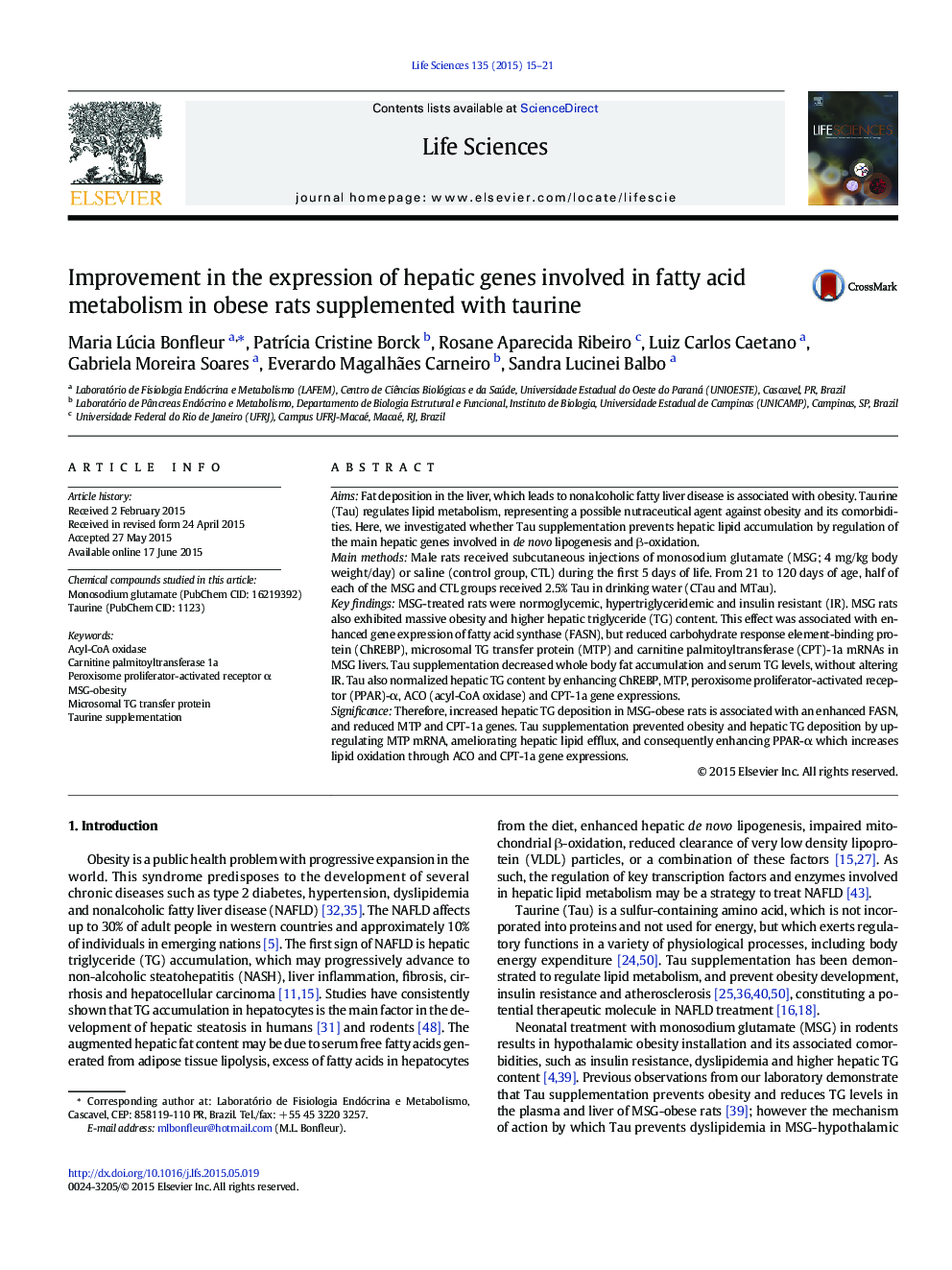| Article ID | Journal | Published Year | Pages | File Type |
|---|---|---|---|---|
| 2550806 | Life Sciences | 2015 | 7 Pages |
AimsFat deposition in the liver, which leads to nonalcoholic fatty liver disease is associated with obesity. Taurine (Tau) regulates lipid metabolism, representing a possible nutraceutical agent against obesity and its comorbidities. Here, we investigated whether Tau supplementation prevents hepatic lipid accumulation by regulation of the main hepatic genes involved in de novo lipogenesis and β-oxidation.Main methodsMale rats received subcutaneous injections of monosodium glutamate (MSG; 4 mg/kg body weight/day) or saline (control group, CTL) during the first 5 days of life. From 21 to 120 days of age, half of each of the MSG and CTL groups received 2.5% Tau in drinking water (CTau and MTau).Key findingsMSG-treated rats were normoglycemic, hypertriglyceridemic and insulin resistant (IR). MSG rats also exhibited massive obesity and higher hepatic triglyceride (TG) content. This effect was associated with enhanced gene expression of fatty acid synthase (FASN), but reduced carbohydrate response element-binding protein (ChREBP), microsomal TG transfer protein (MTP) and carnitine palmitoyltransferase (CPT)-1a mRNAs in MSG livers. Tau supplementation decreased whole body fat accumulation and serum TG levels, without altering IR. Tau also normalized hepatic TG content by enhancing ChREBP, MTP, peroxisome proliferator-activated receptor (PPAR)-α, ACO (acyl-CoA oxidase) and CPT-1a gene expressions.SignificanceTherefore, increased hepatic TG deposition in MSG-obese rats is associated with an enhanced FASN, and reduced MTP and CPT-1a genes. Tau supplementation prevented obesity and hepatic TG deposition by upregulating MTP mRNA, ameliorating hepatic lipid efflux, and consequently enhancing PPAR-α which increases lipid oxidation through ACO and CPT-1a gene expressions.
